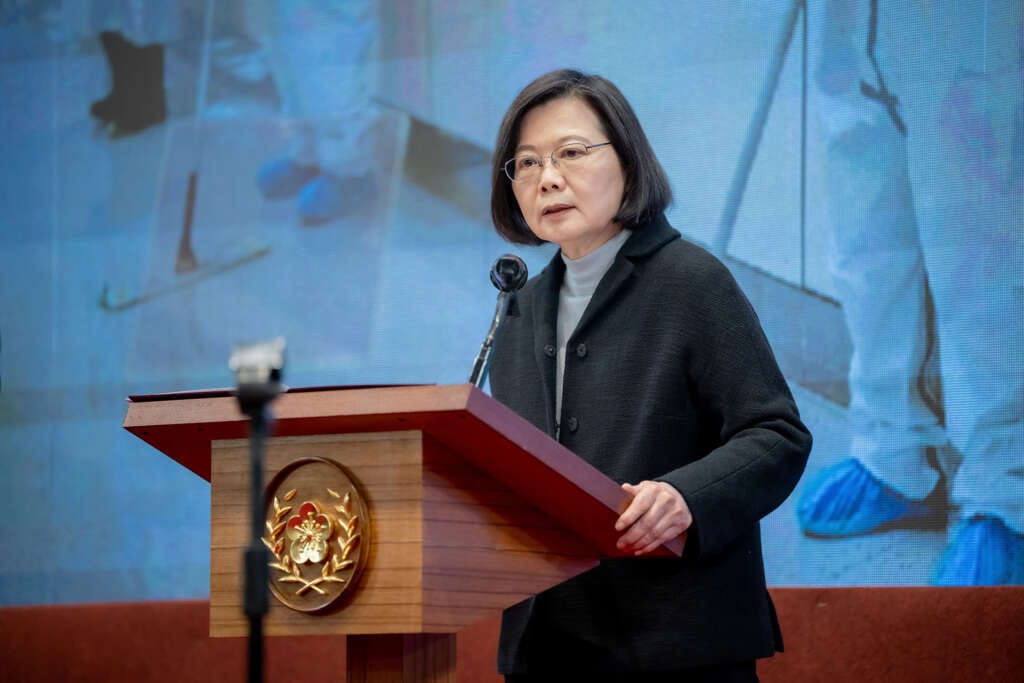
TAIPEI (Reuters) – Taiwan President Tsai Ing-wen called on Germany on Tuesday to help maintain “regional order” during a meeting with senior German lawmakers who are visiting the island on a trip that Beijing has condemned.
Taiwan, which China claims as its own territory, has been heartened by support from Western democratic allies in the face of stepped-up Chinese military threats, including war games staged by China near the island in August.
Meeting the lawmakers at the presidential office, Tsai said that in the face of “authoritarian expansionism”, democracies must stand together.
“Starting next year, Taiwan’s mandatory military service will be extended to one year. This will bolster our defence capabilities and demonstrate our determination to defend our homeland and safeguard democracy,” she said, referring to an announcement last month.
“We look forward to Taiwan, Germany and other democratic partners jointly maintaining the regional order and prosperity.”
While Germany, like most countries, has no formal diplomatic ties with Taiwan, Berlin is working on a new strategy taking a more sober look at its relations with China and aiming to reduce its dependence on Asia’s economic superpower.
Marie-Agnes Strack-Zimmermann, the head of Germany’s parliamentary defence committee and a member of Chancellor Olaf Scholz’s junior coalition partner Free Democrats (FDP), told Tsai that Germany and Taiwan are friends.
Russia’s invasion of Ukraine was a wake up call for the whole world, Strack-Zimmermann said.
“That’s the reason why we come to your country, to your wonderful island, to say (to) the world that we stand close together as democratic states,” she added.
China has expressed anger at the trip, with its foreign ministry on Monday alluding to Germany’s World War Two past.
“We want to point out that the root cause of the Taiwan issue stems precisely from the law of the jungle, hegemony, colonialism and militarism that were once rampant in the world. China was deeply impacted by that. Germany has a deep and tragic historical lesson in that,” Foreign Ministry spokesman Wang Wenbin said.
Taiwan rejects China’s sovereignty claims, saying only the island’s 23 million people can decide their future.
(Reporting by Ben Blanchard; Additional reporting by Yew Lun Tian in Beijing; Editing by Neil Fullick)


